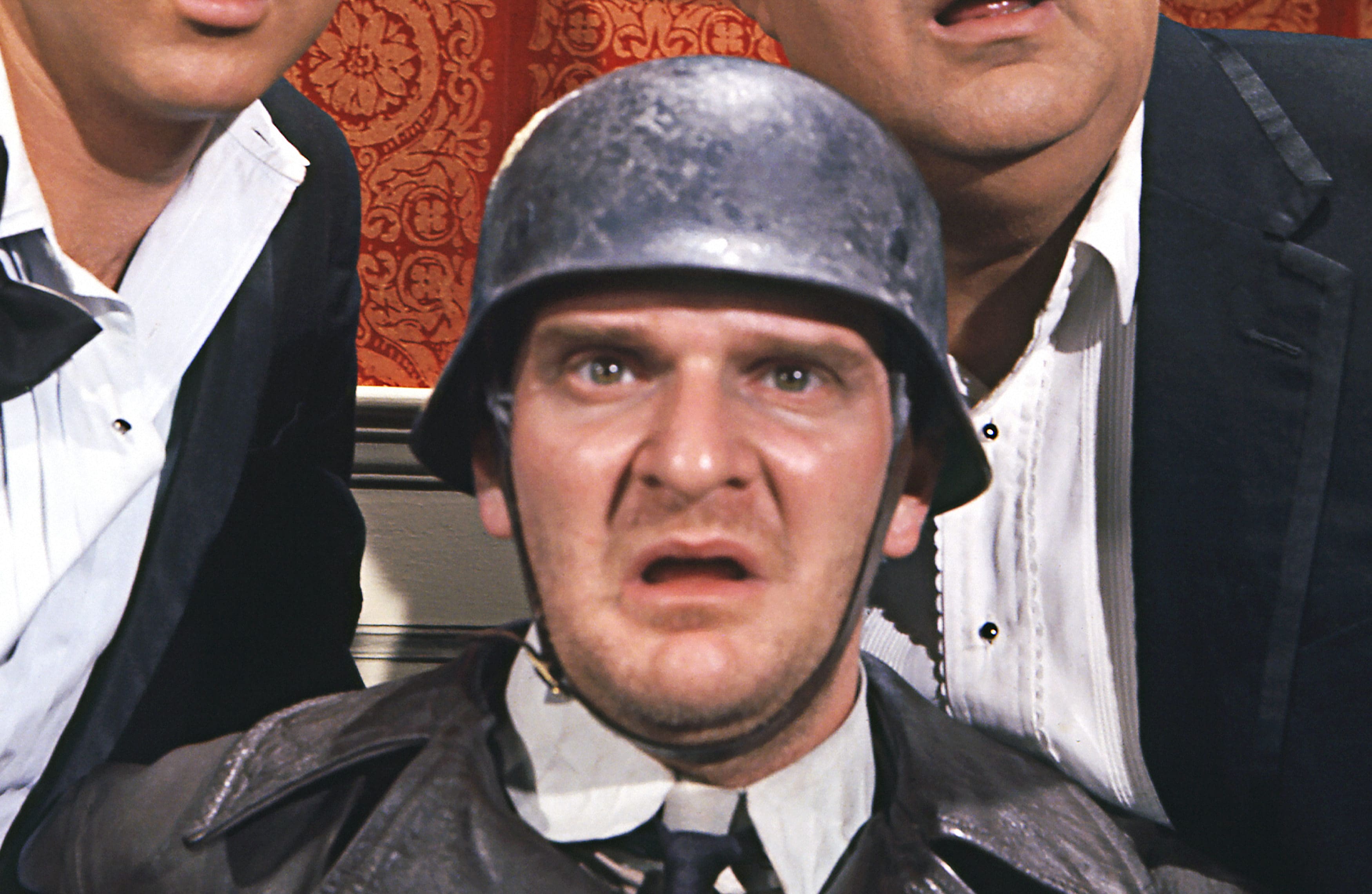Kenneth Mars

About
Biography
Biography
A prolific character actor with a penchant for absurd, theatrical European characters, Kenneth Mars provided some of the most uproarious moments in such classic comedies as Mel Brooks' "The Producers" (1968), "Young Frankenstein" (1974), and countless television shows, features and animated programs. An oversized talent in every sense, the chief weapon in Mars' comedy arsenal was his voice, which seemed to adapt to any variety of accents, including deranged Germans in "Producers" and "Frankenstein," kindly father figures like King Triton in "The Little Mermaid" (1989), and all manner of outlandish humans and animals in network cartoons. Along the way, Mars enjoyed roles in films by Woody Allen ("Radio Days," 1987), George Roy Hill ("Butch Cassidy and the Sundance Kid," 1972), Arthur Penn ("Night Moves," 1975) and Peter Bogdanovich (1972's "What's Up, Doc?"), but it was his roles in the Brooks films and his animated work that ensured his favored status with movie lovers until his death in 2011.
Born in Chicago, IL on April 14, 1936, Kenneth Mars began his onscreen acting career in 1962 on the sitcom "Car 54, Where Are You?" (NBC, 1961-63), and soon became a staple of television comedies and dramas. In 1967, he landed his first role as a series regular on the Emmy-winning "He & She" (CBS, 1967-1970) as Harry Zarakartos, a jocular Greek fireman who would drop in on the show's stars, real life married couple Richard Benjamin and Paula Prentiss, by crossing a plank that connected their apartment to the firehouse across the street. The following year, Mars gained his breakthrough role as Franz Liebkind in "The Producers." A certifiably insane former Nazi, Liebkind penned the musical "Springtime for Hitler," which was purchased and produced by Max Bialystock (Zero Mostel) and Leo Bloom (Gene Wilder) in the hopes of defrauding its investors. Mars' performance, which brought new levels of definition to the word "committed," was highly praised, and cemented him in the minds of audiences and casting directors alike as an eccentric German or other Middle European.
The popularity of "The Producers" gave Mars' career a considerable boost, and he soon graduated to major supporting roles in Hollywood features. Most of these were comedies, which gave him a fine canvas for his broad talents: in "The April Fools" (1969), he was teamed with Melinda Dillon as an over-the-top married couple, while Peter Bogdanovich's "What's Up, Doc?" (1972) cast him as the fraudulent Croatian scientist who competed with Ryan O'Neal for a grant. His greatest comic role of the 1970s was that of Inspector Kemp in Brooks' Oscar-nominated "Young Frankenstein" (1974). A parody of Lionel Atwill's dogged, one-armed inspector in "Son of Frankenstein" (1939), Kemp sported a wooden arm with a mind of its own, as well as an accent so thick that his own countrymen could barely understand him. Mars was also a staple of TV sitcoms during this period, most notably as the hapless W.D. "Bud" Prize, who had invented "chinodontics" to realign his face, on "Fernwood 2-Nite" (syndicated, 1977).
Though primarily considered a comedic actor, Mars was also a capable dramatic performer who brought gravity and sympathy to these infrequent turns. He enjoyed a rare co-lead in "Desperate Characters" (1971), a downbeat drama about a pair of alienated New Yorkers (Shirley MacLaine and Mars) whose marriage begins to crumble, as well as played a small town sheriff who attempts to track down "Butch Cassidy and the Sundance Kid" (1972). As with his comedy work, Mars was best used to flesh out supporting roles, like the detective in "Night Moves" (1975) who tried to lend a hand to struggling P.I. Gene Hackman.
Mars' best work in the 1960s and 1970s provided him with steady if unremarkable work throughout the 1980s and 1990s, mostly on episodic television. There were also infrequent appearances in theatrical features like "Yellowbeard" (1983) and "Fletch" (1985), which made use of his knack for accents and pompous authority figures; Woody Allen also tapped him for "Radio Days" (1987) as an irate rabbi, and his darker "Shadows and Fog" (1992) as the wistful Armstead the Magician, who helped to subdue the film's mysterious strangler. However, Mars' most frequent showcase during this period was in animated films like "The Land Before Time" (1988) and its numerous sequels, as well as television shows like "Freakazoid!" (The WB, 1995-97) and "Batman: The Animated Series" (The WB, 1992-95). In 1989, he voiced King Triton, father of "The Little Mermaid," and reprised the role in subsequent direct-to-video sequels and a weekly series (CBS, 1992-94), as well as the "Kingdom Hearts" (Square Enix, 2006- ) video games.
Mars continued to balance his busy schedule of animation voiceover work and guest roles on television, including a recurring role on "Malcolm in the Middle" (Fox, 2000-06) as Otto Mannkusser, the gullible owner of a dude ranch with a typically broad Germanic accent. He remained active until his death on Feb. 12, 2011 from pancreatic cancer. In addition to his acting career, Mars also recorded a comedy album, Henry the First (1975), which featured his impressions of Henry Kissinger in numerous bits, including a cover of Bachman-Turner Overdrive's "Takin' Care of Business."
Filmography
Cast (Feature Film)
Misc. Crew (Feature Film)
Cast (Special)
Cast (TV Mini-Series)
Life Events
1967
Debut as regular in a comedy TV series, "He and She"
1967
Feature debut, "The Producers"
1971
Star of an unsold pilot, "Shepherd's Flock"
1972
Debut in a TV-movie, "Second Chance"
1972
First co-starring role in a feature, "What's Up, Doc?"
1982
Debut in a miniseries, "The Rules of Marriage"
1985
Debut as voice actor in animated TV series, "The New Jetsons"
Videos
Movie Clip








Trailer

















